

HEALTH INSURANCE
Get Comprehensive Health Insurance
At Lowest Premiums
Why Us
QUALIFIED ADVISORS
TRUSTWORTHY
YOUR INTEREST AT HEART
DEDICATED CLAIMS SUPPORT
BEST DEALS
18 YEARS OF MARKET LEADERSHIP
TRANSPARENT COMMUNICATION
CUSTOMER SERVICE
Our Partners






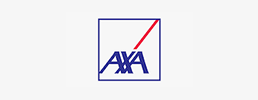


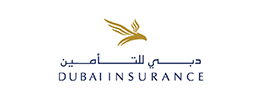

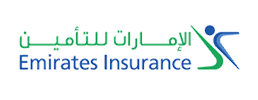
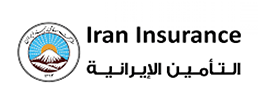

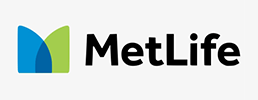
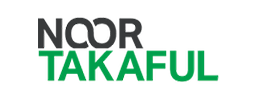
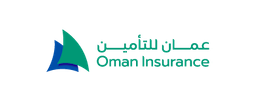
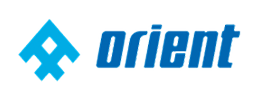
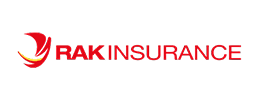
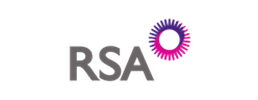

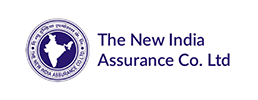








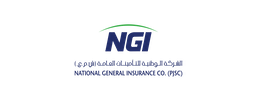






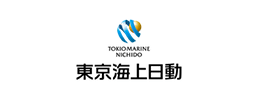
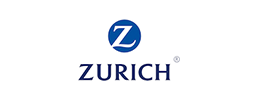


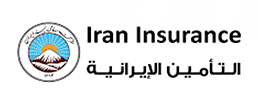



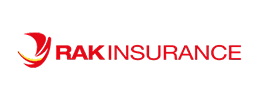
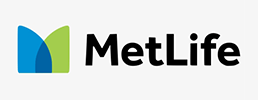
Health insurance In UAE
Average UAE Medical Insurance Prices
Features & Benefits of Health Insurance in UAE
The different features and benefits of medical insurance in Dubai and across the UAE are listed as follows:
- Cashless Treatment: If the insured or any of the covered family members are admitted to a network hospital, they can benefit from a cashless treatment facility for medical treatment. The policyholder needs to provide the policy number, and the rest of the things will be taken care of by the hospital and the health insurers.
- Coverage for Pre & Post Hospitalization: Some effective medical insurance policies cover pre & post-hospitalization expenses for a specific number of days before and after a policyholder is hospitalized.
- Medical Check-Up: A good health insurance plan entitles the policyholder to receive annual medical check-ups.
- Transportation Expenses: If the insured gets hospitalized, the health insurance policy will cover the expenses incurred for an ambulance to transport the policyholder from home to the hospital or vice versa.
- Room Rent: If the insured is hospitalized, they will have to pay room rent. Having medical insurance will ensure that all such expenses are covered to a specific extent.
Types of Health Insurance in UAE
Following are the different types of medical insurance plans that one can choose from to meet their specific insurance needs:
Individual Health Insurance Plans
As its name suggests, Individual medical insurance plans are offered to a single policyholder by health insurance companies in the UAE. It provides financial coverage against illnesses and offering several benefits such as cashless hospitalization, pre, and post-hospitalization, etc. The entire sum assured is provided to only a single person.
Family Health Insurance Plans
Family health insurance plans are the perfect blend of affordability and wider coverage. Instead of purchasing separate medical insurance policies for each family member, one can opt for the family plans to get medical insurance for the entire family under one single cover. This type of health insurance plan usually limits the cover to the policyholder's immediate family, i.e., Spouse and Children. Under family medical insurance plans, each member has a separate sum insured under the policy; DHA has a requirement of AED 150,000 per person per annum
Senior Citizen Health Insurance Plans
Senior Citizen Health Insurance Plans are designed for anyone who is 60 years & above. Senior citizen medical insurance plans typically come with higher costs subject to full medical check-ups borne by the member. Only few health insurance companies in the UAE offer such plan. Senior Citizen Medical Insurance in the UAE may be slightly more expensive than medical insurance for young individuals because senior citizens are more prone to illnesses and diseases.
Financial Conditions:
When you buy car insurance, it acts as a legal contract between you and the insurer. The insurer agrees to share most of the liabilities at the cost of a regular premium amount.
This means we are assuming the insurance company itself needs to be stable enough to deal with all the liabilities that may come it's way at any possible moment. You can figure that by looking at their net worth, net income in the last year, and all other financial data available online. Or, you can gauge their financial health by seeing how they process a claim, how they settle it, or how their history of claim settlement has been.
Group/Employee Health Insurance Plans
Companies in the UAE are expected to purchase group health insurance plans for their employees. Plus, they are created to include & exclude employees as they join & leave the organization. Group health insurance plans are usually low in premium because of the low risks involved.
Critical Illness Health Insurance Plans
A critical illness insurance cover in the UAE is designed to offer coverage for critical, life-threatening diseases and conditions that are generally not covered in a standard medical insurance plan. These conditions may require the plan holder to take treatment for a long period, have multiple hospital visits, and extensive usage of pre and post-hospitalization services make such plans unique. Critical illness cover generally arranges a payout in a lump sum amount to treat illness covered in the policy.
The Top 10 Factors Affecting the Premium
The premium increases according to your age as a typical notion is older individuals are more prone to illness and require more medical assistance.
Overweight people are at a greater risk of diseases like diabetes and heart problems, providing a greater risk.
Your current health status as well as pre-existing conditions, operations, & health problems, and a family history of serious diseases or illnesses are all taken into consideration.
Regular Alcohol consumption and smoking are linked with a higher possibility of serious illness; thus, these habits are likely to raise premiums considerably.
There is more risk attached to individuals exposed to hazardous substances or dangerous situations. Insurance premiums can be higher for individuals who travel a lot.
The more dependents you have, the higher the amount of cover you will need to ensure the payout will be sufficient enough to meet their needs. And a more comprehensive cover does come with a higher premium.
How and when you pay your premiums can affect how much you pay. The most common choice of payment i.e.monthly installments often increases the costs in the long-term because it raises the insurance company’s administration and operating costs. Quarterly, six-monthly or annual payments may reduce the premium costs overall.
Why Should we Compare Health Insurance Plans in UAE?
Comparing health insurance plans before you finally pick one is crucial. Here are four reasons why you should do it: –
To Get Affordable Premium
Affordability is one of the major considerations when you are planning to buy a health insurance policy. Depending on your financial flexibility and healthcare needs, be it individual or for family, your policy premium will be a crucial
aspect.
To Get the Best Plan as per Requirement
There are multiple health insurance plans available with distinct benefits and features. A careful comparison of insurance plans will help you channelize your requirements and pick according to your needs. Do not go by “best of all
policies” advertisement as every policy is different.
To Make an Informed Decision
While comparing, you will get to know a lot about health coverage provided by these policies. It will also help you understand critical factors like the waiting period, claim process, inclusions and exclusions, among others. All this taken
together will help you in making a sensible decision.
When a buyer compares medical insurance online in Dubai or UAE, they can follow a simple process; here’s a quick rundown-
Step #1: Look for plans offering the coverage needed by them within the right price bracket.
Step #2: Shortlist plans from the list based on medical insurance price comparison and unique features and benefits offered by the plan.
Step #3: Lay emphasis on the inclusions, exclusions, and customer reviews of the plan.
Step #4: Take a look at the claim settlement ratio of the provider while comparing health insurance.
Benefits of Comparing and Buying Health Insurance Online
Medical insurance is mandatory by law in the UAE. Whether you are buying health insurance for yourself or purchasing it for your family, it is essential to know the cover benefits associated with your health insurance. Comparing multiple medical insurance plans will enable you to make an informed decision and might bring down the insurance premium.
It is not a difficult task to compare health insurance online. You can do so by visiting FinBuddys.com, and our experienced advisor will help you choose the most suitable medical insurance in UAE. It is simple and easy.
It is free to compare health insurance with FinBuddys.com. You can check the quotes and the coverage multiple times without worrying about any charges.
Comparing health insurance policies offline is not convenient. Imagine going from one office to another, getting quotes, checking coverages is impractical and tedious. On the other hand, comparing health insurance policies on FinBuddys.com is convenient; you can get quotes from leading health insurance providers in the UAE in no time and without leaving your comfort.
You won’t be able to visit an insurance company’s branch office at 11 PM to compare health insurance plans. But you can surely open your laptop at 11 PM and visit FinBuddys.com, and request for health insurance quotes.
Saves time
When you compare health insurance policies online in the UAE, you do not have to spend much time filling out forms or dealing with agents or insuranceexecutives. At FinBuddys.com, you just have to share basic information to receive the medical insurance quotes.
Money-saving is a top benefit you receive when you compare health insurance policies online with FinBuddys.com. You can compare quotes of policies that offer desired coverage at a low price. Low-priced policies do not always mean low quality. At FinBuddys, we always aim to get you a ‘low cost, high coverage’ policy
Using a health insurance premium calculator, you can chop and change your requirements and check how it impacts the pricing. This way, you can try out different coverage combinations and plans to find the most economical option.
If you rely on one insurer or limit your search to two or three insurers, you will be restricted in terms of understanding the coverage offered by other insurers. With FinBuddys.com, you can search for the desired coverage by comparing health insurance policies without simply going with what’s on offer.
Different health insurance companies provide different services. For example, free health check-ups, free look period, reduced waiting period, ambulance cover, etc. It’s not just about the coverage and the price. Ultimately, the service quotient of the insurer will determine how your claim settlement process turns out.
Decisions pertaining to your health must be informed and thorough. You are the best judge regarding the kind of health insurance coverage you need. By comparing with FinBuddys.com, you eliminate guesswork and make an informed choice. For example, details related to sub-limits, room rent, critical illnesses, etc., are provided upfront to ensure transparency. If you have any doubts, you can always call your FinBuddy and get further details.
- Minimum annual limit of 150,000 AED
- Emergency cover across all emirates
- Cover for pre-existing conditions after an initial six-month waiting period
- Inpatient treatment with a maximum 20% excess (or co-pay), capped at 1,000 AED annually
- Outpatient treatment with a maximum 20% excess
- Semi-private hospital accommodation
- Minimum 7,000 AED maternity cover with maximum 10% excess, and up to 10,000 AED cover for a necessary C-section
- Essential vaccinations
- Dental & Optical care – however, this can be purchased as an additional cover
- AIDS, terminal illnesses, and some other diseases of a similar nature – however, this can be purchased as an additional cover
- Non-allopathic treatment
- Plastic/cosmetic surgery, sex change, hormone replacement, etc
- Injuries caused by terrorism/war/suicide attempt/nuclear activity
- Coverage of pre-existing diseases or critical illnesses is subject to a waiting period; however, the waiting period will be waived off if a cover continuity certificate is provided.
- Diagnostic tests/treatment as well as post-medical care procedures
- Medical treatments for obesity
Injury, Poisoning & Sickness |
Outpatient means an individual (patient) who receives health care services (such as surgery) on an outpatient basis where they do not stay overnight in a hospital or inpatient facility, i.e., the procedure does not require hospital admission. |
Inpatient means an individual (patient) whose condition requires admission to a hospital and the consulting Doctor wants to visit the patient frequently to evaluate the improvement in the treatment.
The area within where treatment may be received and are stated in the Policy and Table of Benefits.
The Benefit limit the insured member can utilise maximum in the policy period.
Pre-existing condition is a medical condition that started before a person’s health insurance went into effect. |
A chronic condition is a human health condition or disease that is persistent or otherwise long-lasting in its effects or disease that requires prolonged supervision or palliative treatment. Examples :- Diabetes, Hypertension, Asthma, chronic kidney disease, Cardiac failure, etc |
A formal request to an insurance company asking for a payment based on the terms of the insurance policy. Insurance claims are reviewed by the company for their validity and then paid out to the insured or requesting party (on behalf of the insured) once approved. |
- Direct Billing basis: – It means the insured member can get the treatment/service under the Medical insurance by submitting the Medical insurance card to the Provider such as Hospitals/Clinic/Pharmacy, etc.
- Reimbursement basis: – It means the insured member paid the medical expense from his side and recovering the same from the insurer as per the Policy terms & conditions.
A third-party administrator (TPA) is an organization that processes insurance claims &/ other insurance administration works such as issuance of Medical cards & policies etc, they also arranging the contract or agreement with the Hospitals/Clinics etc. The TPAs are working with insurance companies on contract/agreement basis. Examples of TPA: – Nextcare, Mednet, NAS, Globalnet, etc.
The list of Hospitals/Clinics/Pharmacies etc where the Insurer or TPA has made the contract to serve their clients/insured members on Direct Billing basis.
There are various ‘Network panels’ which is made by the Insurer or TPA as the grade of the providers which included in it. Example: – Nextcare TPA has various Networks such as ‘GN’ (General Network), ‘RN’ (Restricted Network), ‘RN2’ (Restricted Network 2) etc. For our easy understanding to know the difference between GN & RN, we can say the premier hospitals such as Al Zahra Hospital, Mediclinic City Hospital, Mediclinc Welcare hospital etc are included in GN in addition to other middle class Hospitals where RN has NMC speciality Hospitals, Zulekha Hospitals etc only included in that.
Network rate means the rate what is agreed between the Provider and Insurer.
Eg :- If you are visiting a Hospital/Clinic without having an insurance then Hospital will charge their standard rate, say AED 100 for consultation, where as the rate for the same consultation agreed by Hospital & Insurance company will be AED 60 (indicative) based on the agreement between them considering the huge volume of business. So if you are taking a treatment from a provider which is not listed in the insurer’s ‘Network panel of providers’ and you have spent AED 100, where you are submitting such a claim for reimbursement you will not be getting AED 100 reimbursed but you will be getting the rate what a similar provider charge for the same treatment if you would have visited in a provider listed in the insurer’s ‘Network panel of providers’.
Excess / Deductible means the portion of amount the insured member has to contribute from his side towards the claim.
Co-insurance is similar to Excess/Deductible, co-insurance is the % of cost the insured member has to contribute, this is usually applicable in addition to the Excess/Deductible.